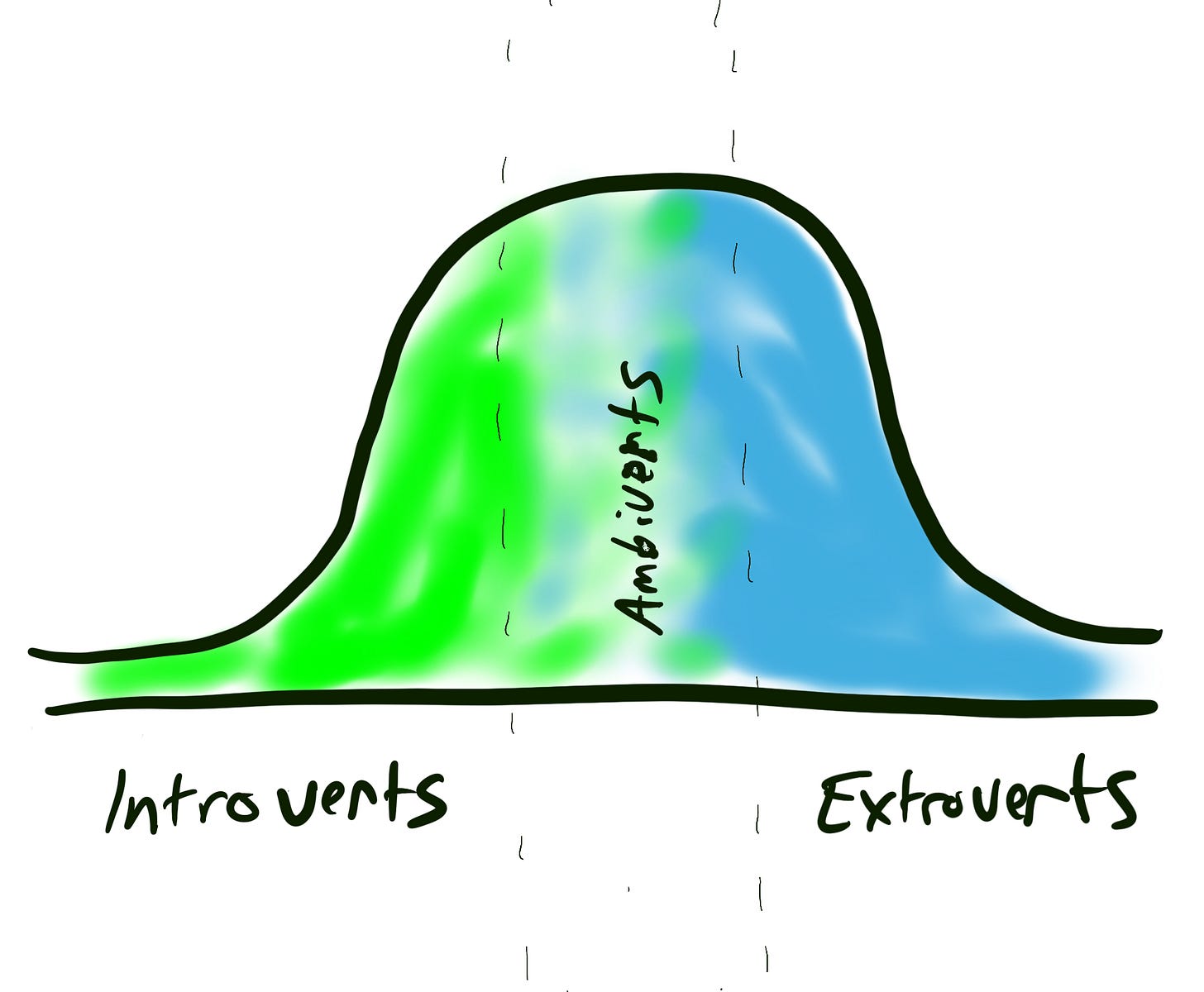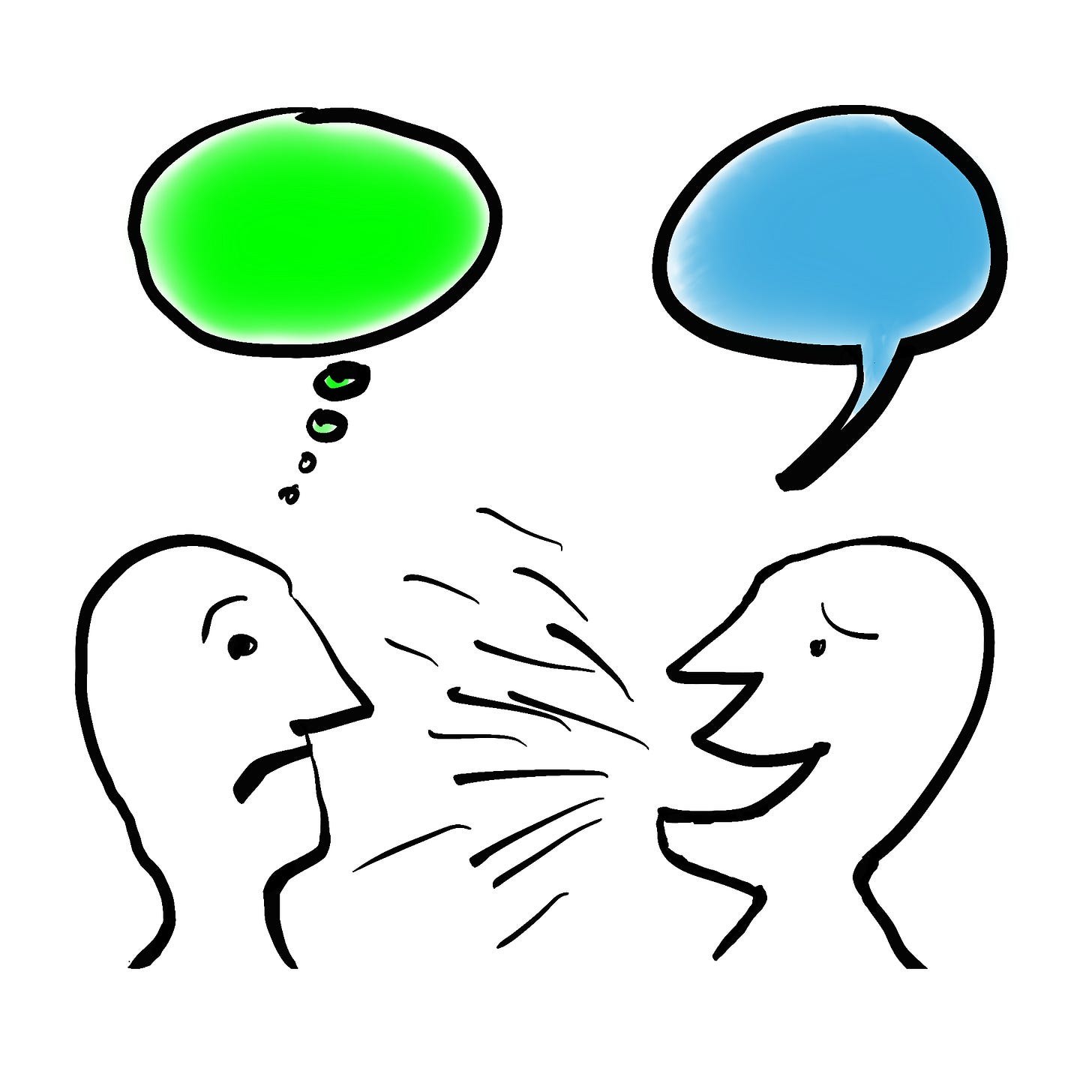Best of Powerful Introvert: 2024
A quick recap of what you may have missed
A year in review may sound overly grandiose considering Powerful Introvert just launched in October. But an old friend and supporter, Michael Van Kleeck, pointed out that you all, like him, are very busy people, so a “Best of” guide could help you find something cool that you’ve missed. (Michael btw is a talented engineer, supporter of the arts, and poet—unusual for an extrovert.)
If you have suggestions for new topics, or follow-up questions about any of this material, please let me know what interests you:
Or:
Introducing The Powerful Introvert Podcast
What is this all about?
We’re here to talk about being an introvert, our incredible strengths and the challenges we face in business. We’ll explore how society’s values and hidden assumptions favor extroverted leaders, and how that hurts us all. You’ll hear interviews with business leaders, experts in the field, and with people like you and me - just trying to make sense of this and improve our lives. Plus you’ll get practical advice for your career and personal wellbeing.
The more I see people respond to this subject, the more I realize how important it is to keep spreading these ideas: the research, books, blogs, documentaries, and lived examples of influential introverted leaders. I’m convinced that we, as introverts, are shortchanging ourselves, our workplaces, and the world by staying quiet.
What even is an introvert?
Here I cover the famous bell curve showing how 50% of the population has some introverted tendencies, and share our defining characteristic: that introverts draw their energy in solitude, while extroverts gain it from interacting with others.
I also tackle the #1 misconception about Introversion: we aren’t all shy. Powerful introverted leaders like Barrack Obama, Warren Buffett, Bill Gates, Abraham Lincoln, and Mahatma Gandhi show introversion is a separate trait from shyness.
I think before I speak
This is something that frustrated me for years: why do I always think before speaking, while others seem content—if not compelled—to voice their every thought? Learn how our natural brain wiring and early childhood experiences shape this essential aspect of our personality.
This tendency of course provides both advantages as well as challenges for introverted leaders.
I am speaking
Here I hit those challenges head on. Just because you pause before you speak, doesn’t mean it’s ok to be interrupted. Check out my 3-level framework for getting your point across, no matter how aggressive your audience.
Interview with a technical leader
In my first podcast interview, I talk to Jeff Cowan, a respected technical leader who shares how he grew into his quiet leadership style.
The Ephemeral Revenge of the Nerds
This was a more personal essay reflecting on the place of “nerds” in popular culture, my own middle-school PTSD, and how much times have changed. It’s safe to say most nerds are introverts, so Powerful Introvert stands in solidarity with nerds of any era!
Interview With The Extrovert
This episode title was meant as a cheeky reference to Interview With The Vampire, because in our interview, Greg Schramm, an extroverted Product Leader, joked that extroverts were energy vampires. I apologize for failing to use this image for emphasis:
This is my first full video podcast interview. It has some really entertaining stories about Schramm’s formative years in the Navy, and how his personality has shifted after a lifetime of living and working with introverts.
Who’s being sensitive?
High Sensitivity is a powerful trait, and it’s distinct from introversion. Learn why over 100 species have some form of this characteristic, and find out if you are one of the lucky more sensitive folks out there.
People in general (and men in particular) don’t like being told that we’re sensitive—the term has even more cultural baggage than “introvert.” But if you don’t like “sensitive,” Jenn Grannemann, author of Sensitive and editor of the Introvert, Dear and Sensitive Refuge websites, suggests you can use “responsive” instead to describe the 20% of the world population that just happens to respond more to stimuli, external and internal. I’m not being defensive—you’re defensive!
That’s it! Thanks so much for reading and supporting this work.





